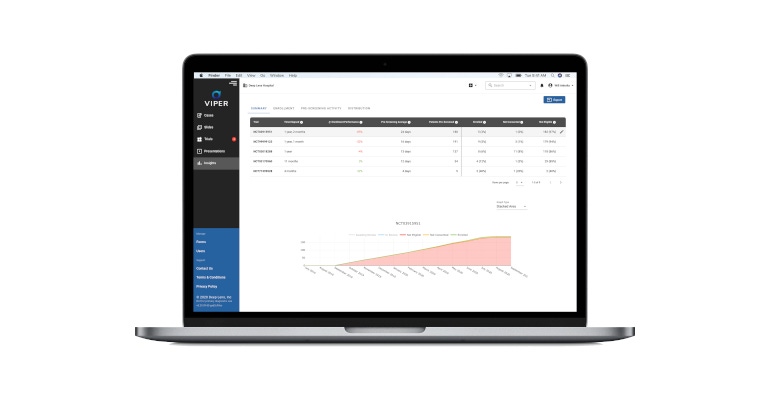VIPER from Deep Lens aims to rapidly and effectively match patients with precision therapies and clinical studies.
September 3, 2020

More than 15,000 oncology clinical trials are actively recruiting patients, yet estimates put the rate of participation as low as three percent of potential trial candidates. And with the onset of the COVID-19 pandemic, many medical institutions have suspended or ended clinical trials. “As a result of the pandemic, healthcare institutions have a COVID-19 protocol to minimize patients to only those necessary,” said Simon Arkell, president and co-founder of Deep Lens, in an interview with MD+DI. Many cancer patients, survivors, and those in remission have also heeded warnings about staying inside and distancing from others, he said, because these patients’ immune systems remain compromised.
This leads to patients cancelling check-ups and study-centric visits to hospitals because of the increased risk for exposure. And the number of cancer-care team members has diminished because these essential employees are now battling the pandemic on the front lines, he explained.
Despite this, and with limited connectivity and interoperability, many institutions are trying to keep studies on track by extending hours and increasing workloads. “Unfortunately, many patients and clinicians are unaware that a clinical trial could be the right therapy option,” he said. “Care teams are overwhelmed with the amount of information and are not always aware of the clinical studies that are available for a patient.”
Arkell believes his company could fix this problem with VIPER, a cloud solution that provides real-time and dynamic patient identification, screening, and matching for clinical trials, giving care teams the speed to identify patients for available trials, to reduce staff burden, and to provide real-time insights for improving communication with all patient care team members and trial sponsors.
“In a recent study, we found that over 50% of cancer patients, if presented with a clinical trial as a treatment option, would enroll,” said Arkell. “The VIPER platform automates the screening process from remote patient identification (at the point of diagnosis) to qualified enrollment.”
Using artificial intelligence, VIPER identifies and matches patients to precision trials in the narrow window of opportunity through lab-agnostic genomic data ingestion, electronic medical records, and pathology data in a way that is customized to both the patient and to the research.
Arkell said that Deep Lens has a customer success team that works directly with trial sponsors to understand and configure the trial protocols into VIPER. Deep Lens provides a clinical research coordinator free of charge to the site or network to assist with the project and provide additional support before, during, and after VIPER implementation. The company also provides a program manager to coordinate activities for set up, implementation, tech support, training, and overall maintenance of the VIPER platform.
Most recently, Deep Lens has collaborated with Franciscan Health Cancer Center to integrate VIPER into the Franciscan Health system. VIPER is currently deploying, Arkell said, and should be live in a few weeks.
About the Author(s)
You May Also Like




